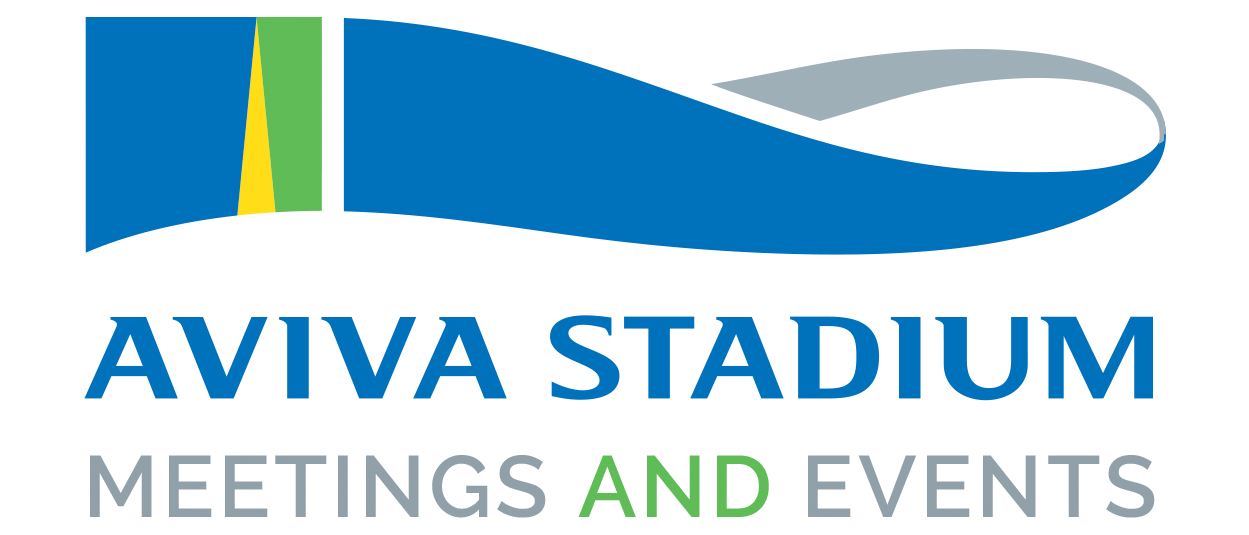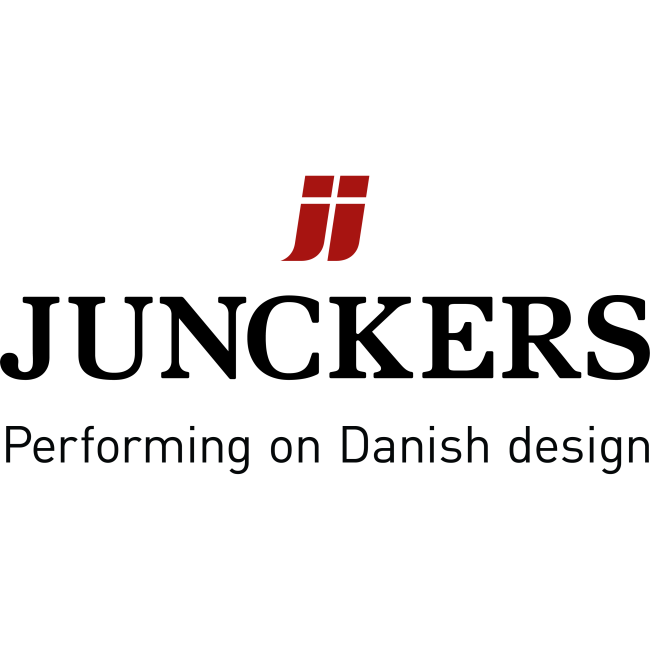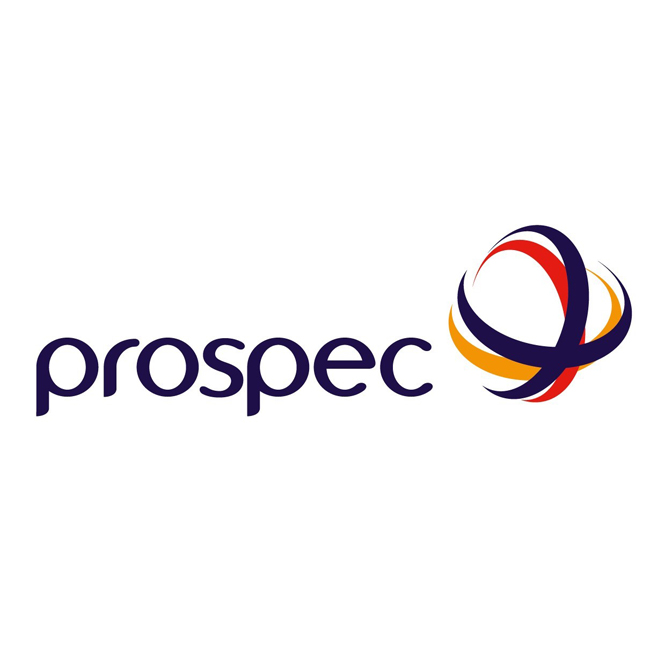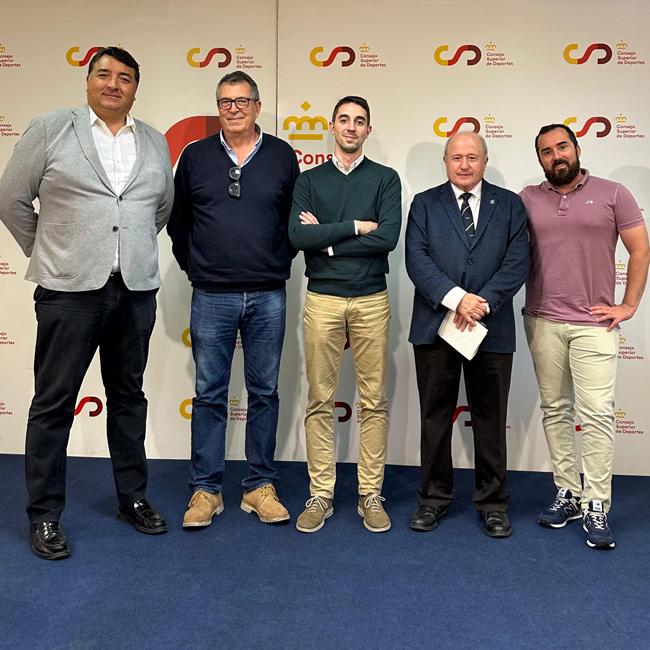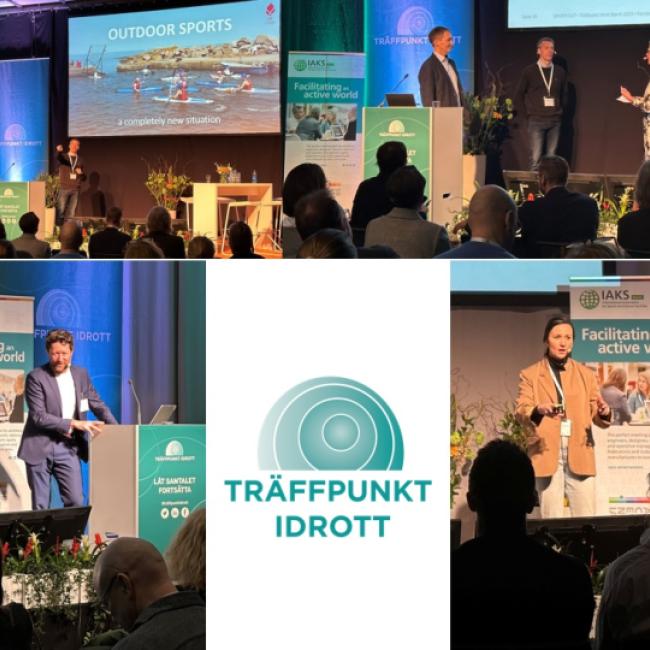First IAKS UK & Ireland seminar "Active Places" in Dublin, Ireland on 2-3 October
Write-up by Stephen Bromberg, Lee Valley Regional Park Authority, UK
More than 120 architects, engineers, operators, consultants, local authorities and universities from across Ireland and the UK, along with European colleagues, gathered in Dublin to share experiences and expertise on creating sustainable futures for the sport and leisure industry. The first IAKS UK and Ireland event to take place in the country dealt with a host of issues around this challenging topic in a fascinating two-day seminar and study tour.
Lee Valley Regional Park Authority Chief Executive Shaun Dawson, who is leading a drive to build a new IAKS UK and Ireland subdivision, opened the conference telling the sell-out audience, “This is a topical and relevant theme which has a strong Irish flavour with an international perspective. It’s all about making IAKS embrace and reach out to all parts of the UK and Ireland.”
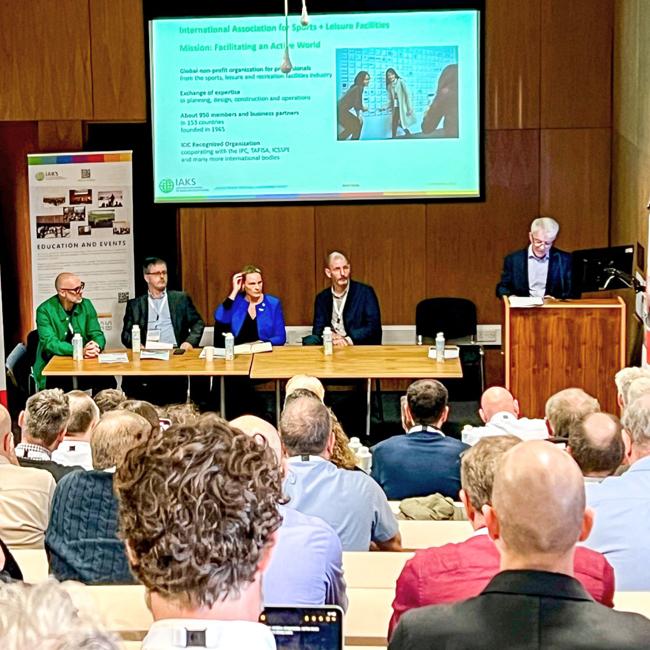
Sport Ireland Campus: where community and elite athletes share training facilities

Day One of the conference was moderated by Gar Holohan, Founder of Aura, and held at the 200 hectare Sport Ireland Campus, an ideal location following Ireland’s best ever Olympic performance this summer.
Tony Lawless, Campus Development Director gave the opening address, explaining the project’s athlete-centred approach and how NGOs, Ireland’s national Olympic Federation and a host of other sports bodies share the space with stunning sports venues. Planning for a new velodrome, badminton centre and cricket oval are well advanced. However, Tony explained, “It’s not just simply about these grand buildings, it’s how we bring the community in, how children can share the environment with elite athletes.”
Also build for the now

Keynote speaker Sarah Keane, Olympic Council of Ireland President and Swim Ireland Chief Executive told delegates that there was a funding gap for new facilities and that now was the time to build for the future. “A lot of infrastructure in Ireland is getting old, shabby and is not fit for purpose,” she said, calling for a collaboration between public access and high performance. She also gave a plea for a balance between “crown jewel” facilities which take a long time to build – and simpler, smaller ones that can be delivered quicker. “My concern is that we are so busy building for the future we are not building for the now,” she said.
Niall Durney from FaulknerBrowns, Matt Wooding from LDA Design and Michael Murray, Campus Chief Operations Officer explored tensions between athlete and community requirements and the need to create footfall for the campus to be economically sustainable, something witnessed on the venue tour with corporate hires and community use filling the athletics and swimming venues.
Christy O’Shea from TU Dublin shared some eye-opening data showing how sport provides university students with social connections, and how students who engage in sport receive higher grades and better graduate outcomes.
Focusing on user needs at an early stage
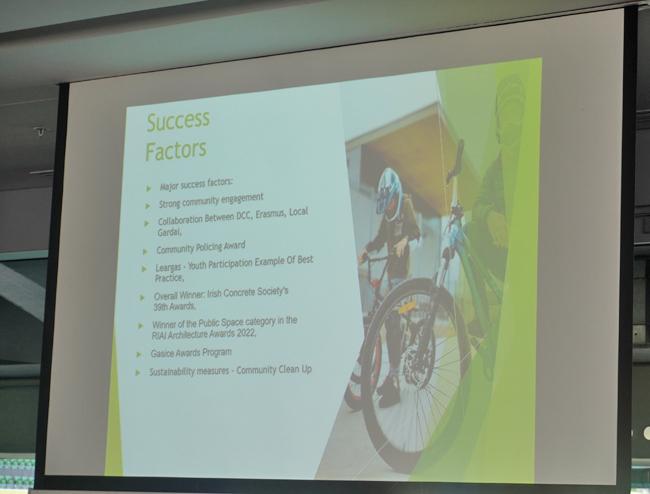
Mike Hall from FaulknerBrowns moderated Day Two at the breathtaking Aviva Stadium, with one of the key themes from many speakers being the importance of taking early decisions on facilities and getting these right.
Don Daly from Dublin City Council and Brian MacNeice from consultants Teneo shared insights from the Council’s first ever strategic plan for sport and physical activity. This is built around making it easier for people to choose healthy lifestyle options. Key elements are aligning with national policy, more creative approaches to green space and using fabulous natural resources like the River Liffey.
Ger O’Reilly from Ballyfermot Youth Service gave a masterclass in community engagement to make sure that new leisure facilities – in his case a skate park in a disadvantaged area of Dublin – are exactly what communities wanted and needed. Getting voices of young people heard and engaged is notoriously difficult and Ger’s approach saw Ireland’s youngest ever deputation at a council meeting.
Fun is key
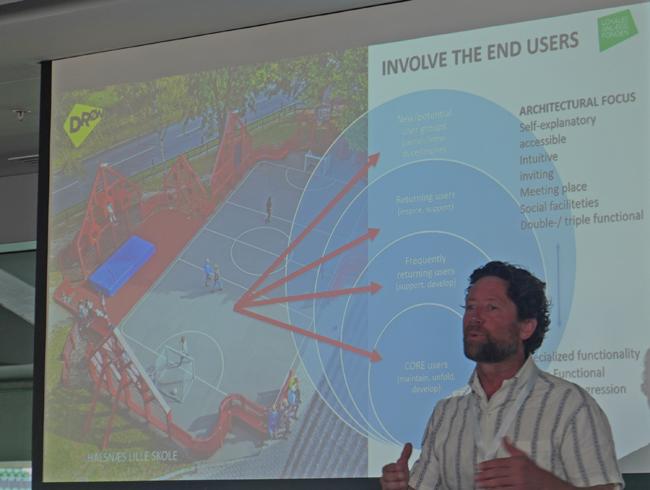
Ola Mattsson from the Danish Foundation for Culture and Sports made an impassioned plea for the industry to better understand the needs of venue users, upending traditional approaches in his home country. “Despite high numbers of sports venues there’s a decline in sports participation. Teenagers drop out of sport,” he told the conference. “Young people want social places to have fun.” He said it should be a “people first” process which asks the end users what they’d like to do, with parkour, graffiti workshops, dance areas, kitchens, street art, music and social facilities integrated into sports venues. “Don’t start with what we will build, start with the why,” he said.
On the road to zero carbon facilities
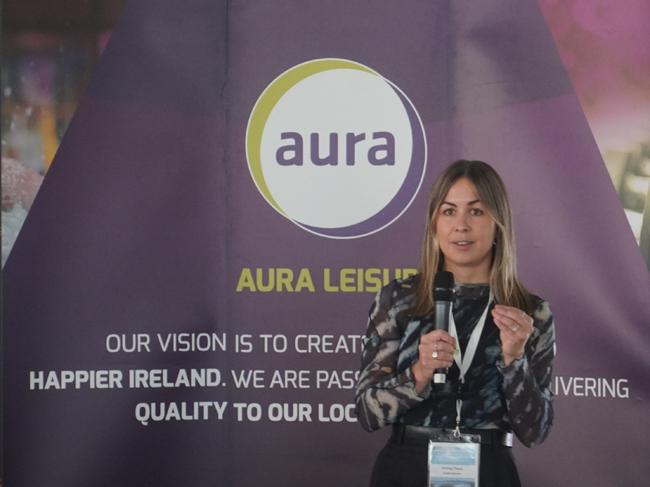
Meeting the decarbonisation challenge was another key theme. John O’Sullivan from the Sustainable Energy Authority of Ireland explained grants for Irish leisure centres and said tailored bespoke solutions would always be needed - from cutting energy use, investing in mechanical and electrical upgrades, retrofitting or building from new.
Aura Leisure’s Padraig Byrne shared a detailed operator perspective on energy, highlighting the importance of sub-metering, energy awareness, preventative maintaining and staff training. “There are no silver bullets, there’s hundreds of elements you need to change,” he said.
This forensic approach was picked up by Aisling Cleary from FaulknerBrowns who revealed that the zero carbon Ravelin Centre in Portsmouth, the first stand-alone BREEAM outstanding leisure venue in the UK, uses just 20% of the energy of a typical pool, relying on vast amounts of real time data to control energy use. She also flipped a lot of industry orthodoxy on its head by showing that it can be more carbon efficient to build new rather than retrofit an existing centre.
Smart planning for large and small venues
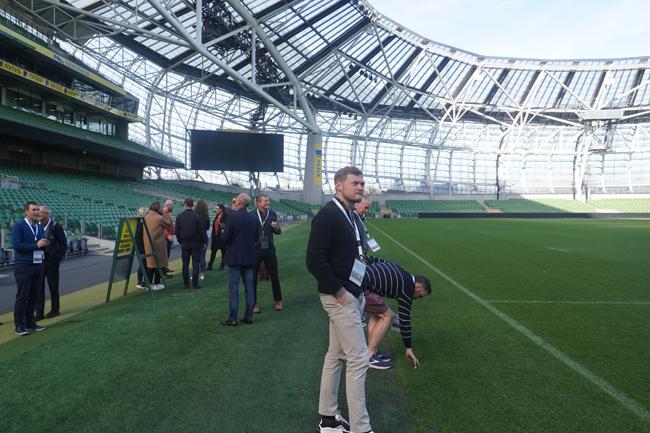
Tom Jones, an IAKS vice president and Populous’ lead on the Aviva Stadium, took delegates through the incredibly complex journey to create the stadium on a very restricted footprint. Daniel Wynne from the stadium discussed some of the sustainability elements built in from the start like rainwater harvesting and the constant search for new technologies such as lightweight solar materials to keep improving its carbon footprint
Valerie Mulvin from McCullough Mulvin Architects shared details of Trinity College’s ingenious new sport and accommodation buildings somehow fitted into a very tight space on a city centre site. “You don’t need vast tracts of land for sports venue, you do need to plan them very well and make them flexible,” she said.
Frank Cooney from Cooney Architects showed how important operating models are. His new GAA Centre of Excellence in Meath relies on volunteers and non-experts to operate it so buildings like these need to be designed without sophisticated maintenance regimes.
Leisure as a problem?
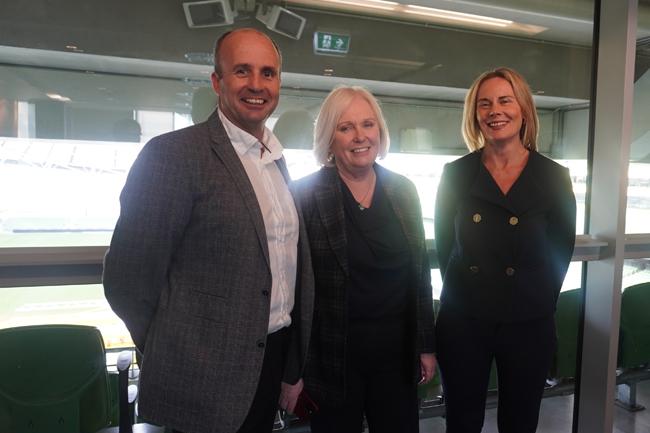
Gar Holohan closed the conference with an expert panel looking at future challenges. “Some local authorities see leisure as a problem to be hived off to the private sector, all have finance objectives, but there are huge social benefits,” he said. “We need to ensure access for all sections of the community to leisure.”
The session touched on challenges which operators are facing around energy and staff costs and the “lost generation” of people who never learned to swim during the pandemic. It again looked at the merits of appointing operators before buildings open so that they work with the architects and engineers as they are the ones left when everyone else has gone. There was much discussion as to how IAKS can support the debate about facilities for the next generation of users in Ireland.
Keep the dialogue going is crucial for the industry
As ever, delegates found it incredibly valuable to tour world class venues and hear about operational and other challenges. The stunning Aviva Stadium, Sport Ireland Campus and the Fitzwilliam Lawn Tennis Club were perfect settings to discuss industry issues. Huge thanks to the organisers of the event with a special mention to Gar Holohan for a wonderful event at the beautiful Fitzwilliam!

